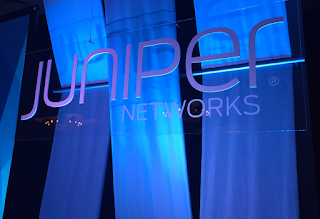Vendor revenue from sales of infrastructure products (server, storage, and Ethernet switch) for cloud IT, including public and private cloud, grew by 8.1% year over year to $8.4 billion in the third quarter of 2016 (3Q16), according to IDC's Worldwide Quarterly Cloud IT Infrastructure Tracker.
 "New cloud data centers have begun to launch, but in the third quarter the effect on the cloud IT infrastructure market was minimal," said Kuba Stolarski, research director for Computing Platforms at IDC. "As network upgrades continue to prop up cloud growth overall, the hyperscale cloud datacenters are coming and they will drive new server and storage deployments over the next few quarters. Recently, there has been renewed strength in emerging markets and among smaller cloud service providers. As OpenStack has become easier to implement and maintain by a growing population of capable system administrators, private cloud options are becoming more viable in an increasing set of use cases and with a wider set of deployment parameters."
"New cloud data centers have begun to launch, but in the third quarter the effect on the cloud IT infrastructure market was minimal," said Kuba Stolarski, research director for Computing Platforms at IDC. "As network upgrades continue to prop up cloud growth overall, the hyperscale cloud datacenters are coming and they will drive new server and storage deployments over the next few quarters. Recently, there has been renewed strength in emerging markets and among smaller cloud service providers. As OpenStack has become easier to implement and maintain by a growing population of capable system administrators, private cloud options are becoming more viable in an increasing set of use cases and with a wider set of deployment parameters."
Some highlights:
http://www.idc.com/getdoc.jsp?containerId=prUS42056316
 "New cloud data centers have begun to launch, but in the third quarter the effect on the cloud IT infrastructure market was minimal," said Kuba Stolarski, research director for Computing Platforms at IDC. "As network upgrades continue to prop up cloud growth overall, the hyperscale cloud datacenters are coming and they will drive new server and storage deployments over the next few quarters. Recently, there has been renewed strength in emerging markets and among smaller cloud service providers. As OpenStack has become easier to implement and maintain by a growing population of capable system administrators, private cloud options are becoming more viable in an increasing set of use cases and with a wider set of deployment parameters."
"New cloud data centers have begun to launch, but in the third quarter the effect on the cloud IT infrastructure market was minimal," said Kuba Stolarski, research director for Computing Platforms at IDC. "As network upgrades continue to prop up cloud growth overall, the hyperscale cloud datacenters are coming and they will drive new server and storage deployments over the next few quarters. Recently, there has been renewed strength in emerging markets and among smaller cloud service providers. As OpenStack has become easier to implement and maintain by a growing population of capable system administrators, private cloud options are becoming more viable in an increasing set of use cases and with a wider set of deployment parameters."Some highlights:
- The overall share of cloud IT infrastructure sales climbed to 39.2% of all IT infrastructure spending in 3Q16, up from 34.7% a year ago. Revenue from infrastructure sales to private cloud grew by 8.2% to $3.3 billion, and to public cloud by 8.0% to $5.1 billion.
- Revenue in the traditional (non-cloud) IT infrastructure segment decreased 10.8% year over year in the third quarter.
- Private cloud infrastructure growth was led by Ethernet switch at 60.8% year-over-year growth, followed by storage at 9.0%, and server at 3.2%.
- Public cloud growth was also led by Ethernet switch at 46.2% year-over-year growth, followed by server at 6.8% storage at 3.0% year over year.
- In traditional IT deployments, server declined the most (12.9% year over year) with Ethernet switch and storage declining 1.6% and 8.6%, respectively.
- From a regional perspective, vendor revenue from cloud IT infrastructure sales grew fastest in Middle East & Africa at 36.7% year over year in 3Q16, followed by Japan at 29.9%, Latin America at 21.7%, Western Europe at 16.8%, Asia/Pacific (excluding Japan) at 11.9%, Canada at 5.3%, Central & Eastern Europe at 4.3%, and the United States at 2.9%.
http://www.idc.com/getdoc.jsp?containerId=prUS42056316


















